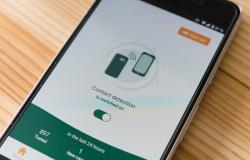
Over a third of the world’s countries have launched contact-tracing apps in response to the COVID-19 pandemic, generating much hype about the prospect of automating contact-tracing to manage outbreaks and to alleviate costly and labour-intensive ‘manual’ contact tracing. Despite the stringent scientific criteria applied to the development of vaccines and other biomedical countermeasures in responding to the pandemic, digital contact tracing has been widely recommended despite being an unproven public health intervention. Evidence for its effectiveness is thin, based on theoretical mathematical modelling and unsystematic observations across diverse country contexts. Establishing evidence of effectiveness is complicated by the fact that two private corporations, Apple and Google, own the technology upon which most government contact-tracing apps are based and which, by design, restricts access to needed data on privacy grounds. In this policy insight, we make the case for why public health authorities urgently need to establish the effectiveness and societal implications of this big digital contact-tracing experiment.
Photo by Markus Winkler from Pexels